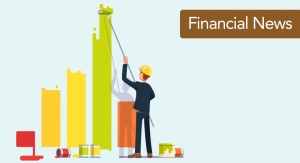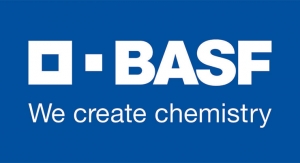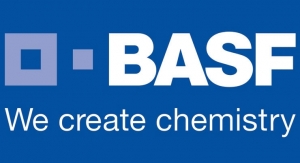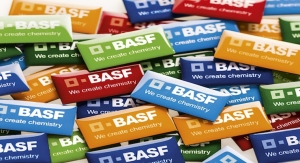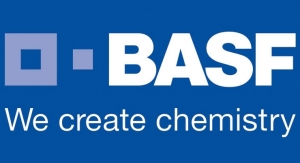04.27.17
BASF completed the first quarter of 2017 with a considerable rise in sales and earnings compared to the same quarter of last year. “BASF has had a good start to the year 2017,” said Dr. Kurt Bock, Chairman of the Board of Executive Directors of BASF SE. “The demand trends we observed over the course of 2016 continued in the first quarter of this year.”
BASF Group’s sales rose by 19% in the first quarter of 2017 to €16.9 billion. In all segments, the positive volume trend seen in previous quarters was maintained and led to growth of 8% in sales volumes. Furthermore, BASF achieved significantly higher sales prices (up 8%), especially in the Chemicals segment. Currency effects and the Chemetall business acquired from Albemarle in December 2016 also contributed to the increase in sales.
BASF Group’s income from operations (EBIT) before special items was 29% higher at €2.5 billion. Of this amount, €2.0 billion was generated by the chemicals business, which comprises the segments Chemicals, Performance Products and Functional Materials & Solutions. Earnings in the chemicals business thus grew by 37%.
BASF received an initial insurance payment of €100 million in connection with the accident that occurred at the North Harbor in Ludwigshafen last October. Around three-quarters of this amount was recognized in the Chemicals segment.
EBIT grew by €585 million to €2.5 billion compared with the first quarter of 2016.
Net income rose by €322 million to €1.7 billion. Earnings per share were €1.86 in the first quarter of 2017, compared with €1.51 in the same quarter of 2016. Adjusted for special items and amortization of intangible assets, earnings per share amounted to €1.97 (first quarter of 2016: €1.64).
Outlook for the year 2017
BASF’s expectations for the global economic environment in 2017 remain unchanged:
“We remain cautious when it comes to our outlook for the full year. We still see considerable risks with regard to macroeconomic development and the political environment,” said Bock. “We confirm our 2017 forecast for BASF Group sales and earnings. We expect considerable sales growth for the BASF Group in 2017. According to our definition, that equates to an increase of at least 6% in sales. We want to achieve slightly higher EBIT before special items compared with 2016. In this case, ‘slight’ means a change of 1-10%; we expect the increase will be toward the top end of that range.”
Development of the segments
In the Chemicals segment, sales rose by 36% compared with the previous first quarter to €4.1 billion, largely as a result of higher prices in the Petrochemicals and Monomers divisions. Sales were furthermore supported by the higher level of sales volumes in all divisions. Currency effects slightly boosted sales. Due to higher margins and volumes, EBIT before special items grew by €501 million compared with the first quarter of 2016 and reached €958 million. The negative impact on earnings in the first quarter of 2017 caused by the accident at the North Harbor of the Ludwigshafen site was offset by an initial insurance payment for the damages occurring in the fourth quarter of 2016. Fixed costs were up year-on-year, due primarily to the startup of new plants.
Sales in the Performance Products segment grew by 9% versus the first quarter of 2016 and amounted to €4.3 billion. This was mainly the result of increased volumes in the Dispersions & Pigments, Care Chemicals and Performance Chemicals divisions. The segment experienced positive currency effects in all divisions and slightly raised sales prices overall. Portfolio effects dampened sales development. EBIT before special items declined by €40 million compared with the solid level of the previous first quarter due to lower margins and higher fixed costs and came in at €515 million.
In the Functional Materials & Solutions segment, sales grew by 18% year-on-year at €5.2 billion. This was predominantly the result of a sharp rise in sales volumes, primarily driven by higher demand from the automotive industry. Sales development was also supported by the Chemetall business acquired from Albemarle in December 2016, along with slight price increases and currency effects. Compared with the previous first quarter, EBIT before special items rose by €75 million to reach €531 million, thanks in particular to the volume growth and the Chemetall acquisition.
The Agricultural Solutions segment reported a 4% year-on-year increase in sales to €1.9 billion despite a market environment that remained difficult. The main drivers here were higher volumes and positive currency effects, with prices stable. EBIT before special items declined by €58 million to €533 million compared with the strong first quarter of 2016. This was the result of lower average margins due to a different product mix. Fixed costs rose slightly, due in part to the startup of new plants.
Sales of €829 million in the Oil & Gas segment were 36% higher than in the first quarter of the prior year, mainly driven by higher prices. The price of a barrel of Brent blend crude oil averaged $54 in the first quarter of 2017 (first quarter of 2016: $34). Gas prices on European spot markets also rose sharply compared with the previous first quarter. Production volumes matched the level of the previous first quarter, while sales volumes, especially of gas, exceeded the level of the first quarter of 2016. EBIT before special items also improved considerably, rising by €104 million versus the prior-year period to reach €170 million. This was largely attributable to the rise in prices. Net income grew significantly.
Compared with the first quarter of the prior year, sales in Other rose by €133 million to €610 million, mainly as a result of increased prices in raw materials trading. EBIT before special items fell by €31 million and amounted to minus €250 million. This was predominantly a consequence of valuation effects for our long-term incentive program.
From a regional perspective, BASF was able to considerably improve sales and earnings in Asia Pacific in particular. Volumes in that region rose substantially in all segments; sales prices increased, especially in the Chemicals segment. Business in China was the main driver of this development. More information about business development in the regions can be found on page 13 of the Quarterly Statement published today.
BASF Group’s sales rose by 19% in the first quarter of 2017 to €16.9 billion. In all segments, the positive volume trend seen in previous quarters was maintained and led to growth of 8% in sales volumes. Furthermore, BASF achieved significantly higher sales prices (up 8%), especially in the Chemicals segment. Currency effects and the Chemetall business acquired from Albemarle in December 2016 also contributed to the increase in sales.
BASF Group’s income from operations (EBIT) before special items was 29% higher at €2.5 billion. Of this amount, €2.0 billion was generated by the chemicals business, which comprises the segments Chemicals, Performance Products and Functional Materials & Solutions. Earnings in the chemicals business thus grew by 37%.
BASF received an initial insurance payment of €100 million in connection with the accident that occurred at the North Harbor in Ludwigshafen last October. Around three-quarters of this amount was recognized in the Chemicals segment.
EBIT grew by €585 million to €2.5 billion compared with the first quarter of 2016.
Net income rose by €322 million to €1.7 billion. Earnings per share were €1.86 in the first quarter of 2017, compared with €1.51 in the same quarter of 2016. Adjusted for special items and amortization of intangible assets, earnings per share amounted to €1.97 (first quarter of 2016: €1.64).
Outlook for the year 2017
BASF’s expectations for the global economic environment in 2017 remain unchanged:
- Growth in gross domestic product: 2.3%
- Growth in industrial production: 2.3%
- Growth in chemical production: 3.4%
- An average euro/dollar exchange rate of $1.05 per euro
- An average Brent blend oil price for the year of $55 per barrel
“We remain cautious when it comes to our outlook for the full year. We still see considerable risks with regard to macroeconomic development and the political environment,” said Bock. “We confirm our 2017 forecast for BASF Group sales and earnings. We expect considerable sales growth for the BASF Group in 2017. According to our definition, that equates to an increase of at least 6% in sales. We want to achieve slightly higher EBIT before special items compared with 2016. In this case, ‘slight’ means a change of 1-10%; we expect the increase will be toward the top end of that range.”
Development of the segments
In the Chemicals segment, sales rose by 36% compared with the previous first quarter to €4.1 billion, largely as a result of higher prices in the Petrochemicals and Monomers divisions. Sales were furthermore supported by the higher level of sales volumes in all divisions. Currency effects slightly boosted sales. Due to higher margins and volumes, EBIT before special items grew by €501 million compared with the first quarter of 2016 and reached €958 million. The negative impact on earnings in the first quarter of 2017 caused by the accident at the North Harbor of the Ludwigshafen site was offset by an initial insurance payment for the damages occurring in the fourth quarter of 2016. Fixed costs were up year-on-year, due primarily to the startup of new plants.
Sales in the Performance Products segment grew by 9% versus the first quarter of 2016 and amounted to €4.3 billion. This was mainly the result of increased volumes in the Dispersions & Pigments, Care Chemicals and Performance Chemicals divisions. The segment experienced positive currency effects in all divisions and slightly raised sales prices overall. Portfolio effects dampened sales development. EBIT before special items declined by €40 million compared with the solid level of the previous first quarter due to lower margins and higher fixed costs and came in at €515 million.
In the Functional Materials & Solutions segment, sales grew by 18% year-on-year at €5.2 billion. This was predominantly the result of a sharp rise in sales volumes, primarily driven by higher demand from the automotive industry. Sales development was also supported by the Chemetall business acquired from Albemarle in December 2016, along with slight price increases and currency effects. Compared with the previous first quarter, EBIT before special items rose by €75 million to reach €531 million, thanks in particular to the volume growth and the Chemetall acquisition.
The Agricultural Solutions segment reported a 4% year-on-year increase in sales to €1.9 billion despite a market environment that remained difficult. The main drivers here were higher volumes and positive currency effects, with prices stable. EBIT before special items declined by €58 million to €533 million compared with the strong first quarter of 2016. This was the result of lower average margins due to a different product mix. Fixed costs rose slightly, due in part to the startup of new plants.
Sales of €829 million in the Oil & Gas segment were 36% higher than in the first quarter of the prior year, mainly driven by higher prices. The price of a barrel of Brent blend crude oil averaged $54 in the first quarter of 2017 (first quarter of 2016: $34). Gas prices on European spot markets also rose sharply compared with the previous first quarter. Production volumes matched the level of the previous first quarter, while sales volumes, especially of gas, exceeded the level of the first quarter of 2016. EBIT before special items also improved considerably, rising by €104 million versus the prior-year period to reach €170 million. This was largely attributable to the rise in prices. Net income grew significantly.
Compared with the first quarter of the prior year, sales in Other rose by €133 million to €610 million, mainly as a result of increased prices in raw materials trading. EBIT before special items fell by €31 million and amounted to minus €250 million. This was predominantly a consequence of valuation effects for our long-term incentive program.
From a regional perspective, BASF was able to considerably improve sales and earnings in Asia Pacific in particular. Volumes in that region rose substantially in all segments; sales prices increased, especially in the Chemicals segment. Business in China was the main driver of this development. More information about business development in the regions can be found on page 13 of the Quarterly Statement published today.

